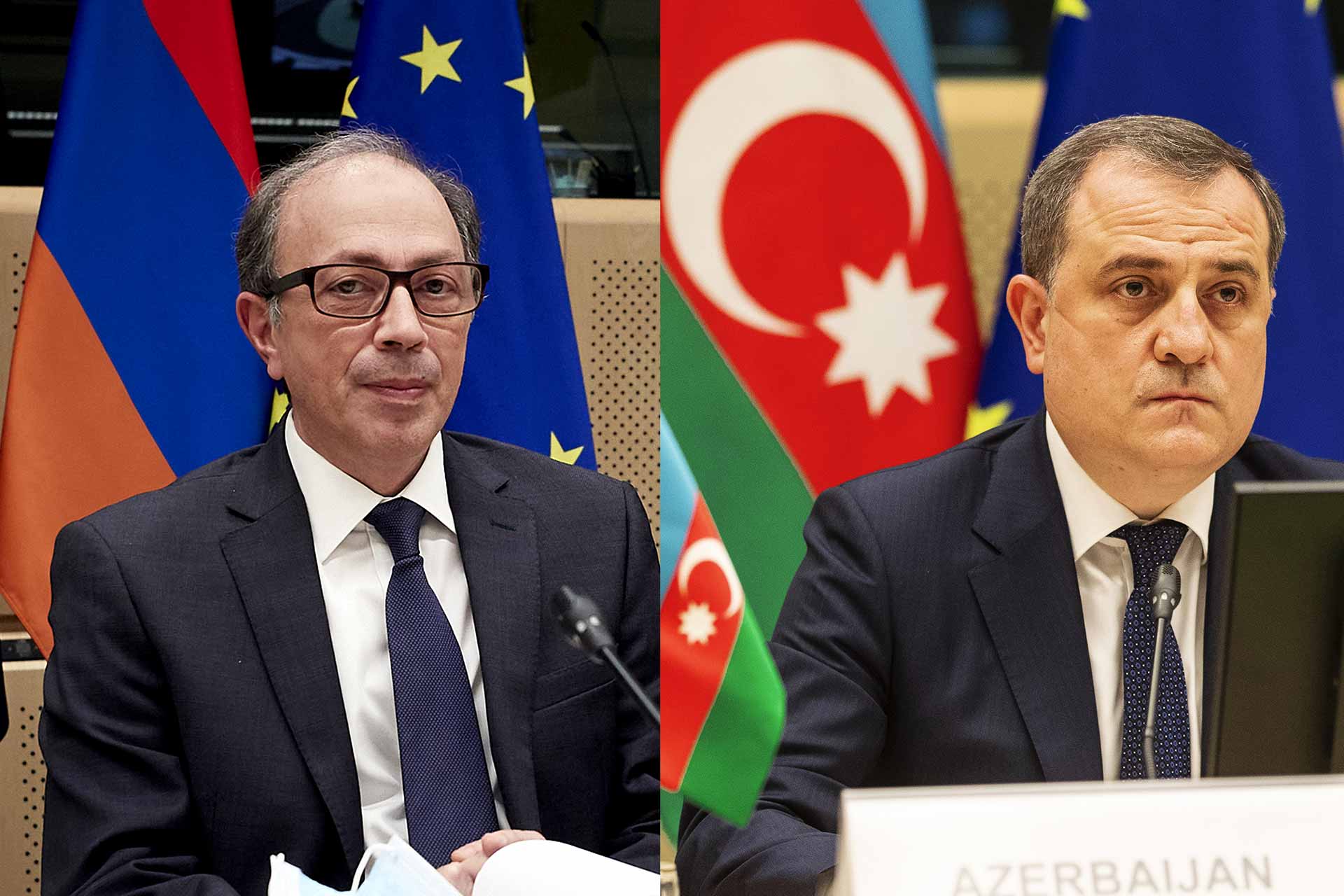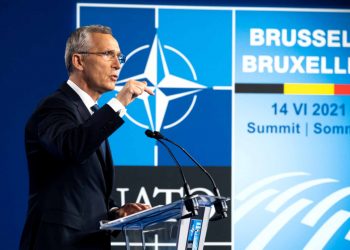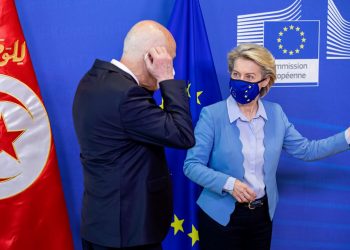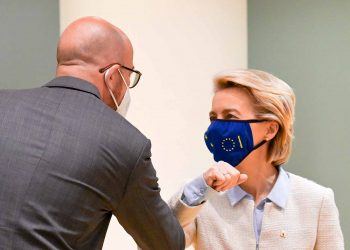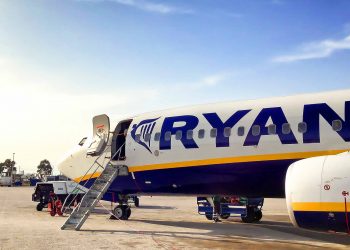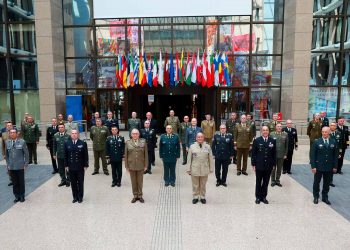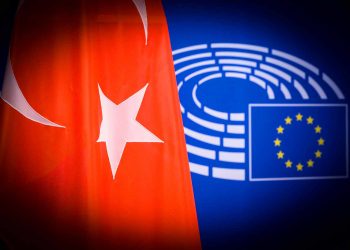A Brussels trilateral meeting with Armenia and Azerbaijan to debate Nagorno Karabakh conflict ‘has not been possible’. Foreign Ministers of Armenia and Azerbaijan, Ara Aivazian and Jeyhun Bayramov were in Brussels last week but it was impossible to arrange a meeting. EU High Representative for Foreign Affairs and Security Policy Josep Borrell confirmed that he tried to hold a trilateral meeting in Brussels, but with no success.
Unhappily, the difficult situation between the two countries made it impossible to have any kind of common [trilateral] contact.
Josep Borrell, EU HR/VP
The safe return of refugees and displaced persons, as well as the exchange of prisoners are the main issues for the Nagorno Karabakh . European Union can play an important role in the reconciliation, reconstruction and peace-consolidation in the region. EU could join forces with the Minsk Group. EU works for a close partnership with the two countries of the region and supports the recovery for a sustainable peace.
The Nagorno Karabakh conflict
The Nagorno-Karabakh conflict is an ethnic and territoriaλ conflict between Armenia and Azerbaijan. It is a war over the disputed region of Nagorno-Karabakh, inhabited mostly by ethnic Armenians.
At least 5,000 Armenians died and Azerbaijan made territorial gains. The recent conflict was brought to an end by a Russian-mediated peace deal, but clashes have broken out again. The Russian-brokered deal halted a six-week conflict between Azeri and ethnic Armenian forces over the region and its surrounding areas, locking in territorial gains for Azerbaijan.
Clashes erupted on September 27 and the Armenian army launched attacks on civilians and Azerbaijani forces, violating cease-fire agreements. Nagorno-Karabakh was internationally recognised as part of Azerbaijan, but is governed by ethnic Armenians backed by the Armenian government. During the 44-day conflict, Azerbaijan claims that liberated several cities and nearly 300 settlements and villages from Armenia occupation. The two countries signed a Russia-brokered agreement on November 10 to end the fighting and work toward a comprehensive resolution. The Minsk Group is the only international body authorized to facilitate negotiations for a comprehensive and lasting solution to the Nagorno-Karabakh issue.
New realities after the Armenia-Azerbaijan War
EU calls for an immediate ceasefire in Nagorno Karabakh
Armenians have protested after reports that as many as 100 soldiers were seized by Azerbaijani forces in Nagorno-Karabakh. Protests took place in Karabakh and in Armenia’s capital, Yerevan. Armenian authorities in the region of Nagorno-Karabakh accused Azeri forces on Wednesday of capturing several dozen of their troops. This development puts further strain on a ceasefire deal that brought an end to bloody fighting in the region.
This will not break us!
Armenians leaving Nagorno-Karabakh
EU-Armenia Partnership Council, 17 December 2020
The 3rd Partnership Council meeting between the European Union and the Republic of Armenia was held in Brussels on 17 December 2020. The Council was chaired by the High Representative of the European Union for Foreign Affairs and Security Policy, Mr Josep Borrel. EU Commissioner for Neighbourhood and Enlargement, Olivér Várhelyi participated and Foreign Minister Mr Ara Ayvazyan led the Armenian delegation.
The Partnership Council reviewed the implementation of the EU-Armenia Comprehensive and Enhanced Partnership Agreement (CEPA). This CEPA for Armenia covers a wide range of cooperation in the political, economic, trade, and other sectoral areas. It also discussed other issues relevant for EU-Armenia relations. The EU reiterated that it remains fully committed to the joint agenda as well as to supporting Armenia in overcoming challenges on its reform path.
The Partnership Council also addressed the challenges posed by the COVID-19 pandemic. The Council confirmed the EU’s support to Armenia’s efforts protect lives and livelihoods, and to reopen societies and the economy. The EU and Armenia also discussed the situation in and around Nagorno-Karabakh following the cessation of hostilities on 10 November 2020. EU role continues in supporting recovery and reconciliation, as well as regional issues.
Ara Aivazian, Foreign Affairs Minister of Armenia
Ahead of the Partnership Council, the European Union issued a report on developments in Armenia and EU-Armenia relations since May 2019. The report underlines Armenia’s progress in implementing the EU-Armenia Comprehensive and Enhanced Partnership Agreement. Also the report highlights the commitment to domestic reforms, and the key role of the EU in supporting them.
The EU-Armenia Partnership Council took place one day ahead of the EU-Azerbaijan Cooperation Council. These meetings reiterate the importance of the EU’s partnership with the countries in the region and the EU’s support to its recovery and to sustainable peace.
EU-Azerbaijan Cooperation Council, 18 December 2020
The 17th Cooperation Council meeting between the European Union and the Republic of Azerbaijan was held in Brussels on 18 December 2020. The Council was chaired by High Representative of the European Union for Foreign Affairs and Security Policy, Josep Borrell. EU Commissioner for Neighbourhood and Enlargement, Olivér Várhelyi participated and Minister of Foreign Affairs, Jeyhun Bayramov, led the Azerbaijani delegation.
The Cooperation Council reviewed the implementation of the jointly agreed EU-Azerbaijan Partnership Priorities, Azerbaijan’s reform agenda, prospects for a new EU-Azerbaijan bilateral agreement, the coronavirus pandemic and its impact, and the situation following the recent large-scale hostilities in and around Nagorno-Karabakh.
In reviewing the implementation of the Partnership Priorities, the EU and Azerbaijan took note of very good cooperation in the energy sector. The first dispatching of gas from Azerbaijan through the Southern Gas Corridor is expected before the end of 2020. The Council also addressed challenges to democracy, the rule of law and human rights and fundamental freedoms. In particular EU debates the freedom of association and freedom of expression and of media in Azerbaijan. The Council discussed the state of play of negotiations. The new comprehensive agreement and of the Common Aviation Area Agreement.
The EU and Azerbaijan exchanged views on the situation in and around Nagorno-Karabakh following the cessation of hostilities on 10 November 2020, the EU’s role in supporting recovery and reconciliation, as well as regional issues. The EU-Azerbaijan Cooperation Council took place one day after the EU-Armenia Partnership Council. These meetings reiterate the importance of the EU’s partnership with the countries in the region and the EU’s support to its recovery and sustainable peace.

